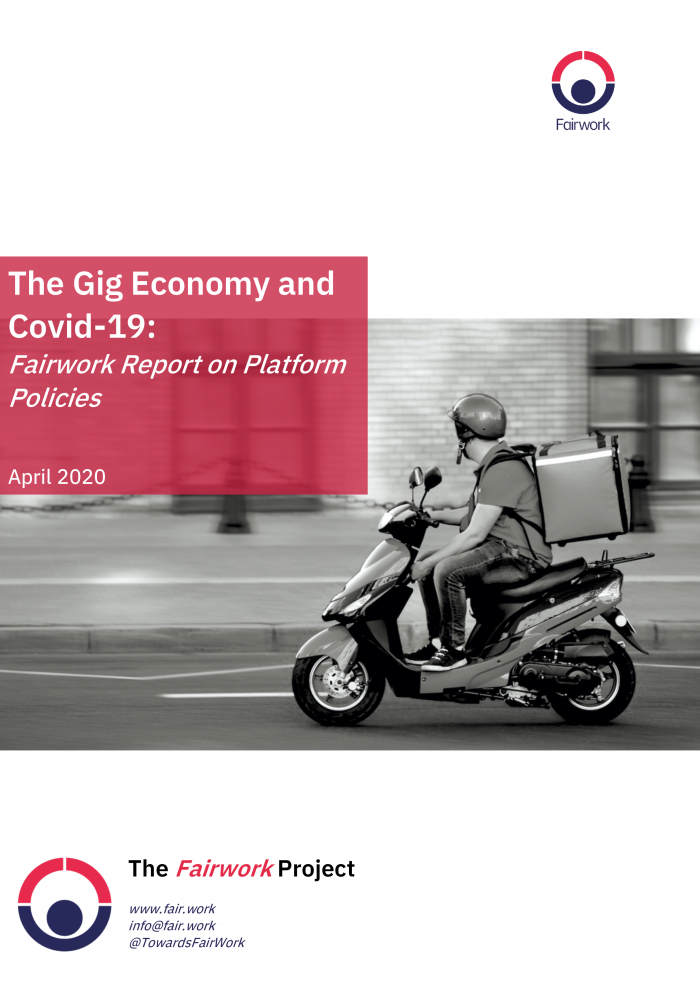The Gig Economy and Covid-19


The estimated 50 million gig workers worldwide have been particularly hard-hit by the Covid-19 pandemic. Reports indicate half have lost their jobs; those still working have lost two-thirds of their income on average; and many face the impossible choice between destitution and infection, as summed up by one worker: “either I’m starving or I’m dying of coronavirus”. While those still in work perform functions essential to society, the pandemic has opened up fracture lines of inequality: not just between gig workers and others who are
currently better served by government support schemes, but also by placing added pressures on women, immigrants, and minority-ethnic groups who form a core part of the gig workforce.
So how are platforms responding? To investigate this further, the research team at the Fairwork Foundation undertook a survey of platform response policies; as of April 2020 covering 120 platforms in 23 countries across Europe, North America, South America, Asia and Africa.
Suggested citation:
Fairwork. 2020. The Gig Economy and Covid-19: Fairwork Report on Platform Policies. Oxford, United Kingdom.